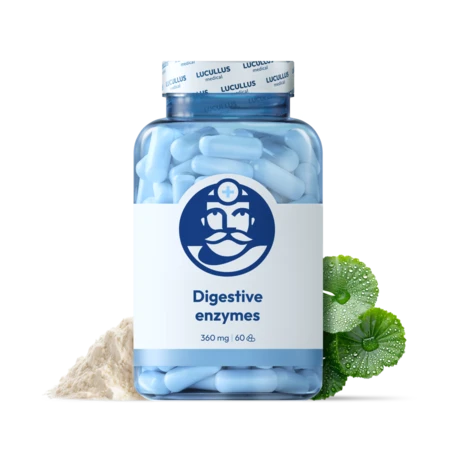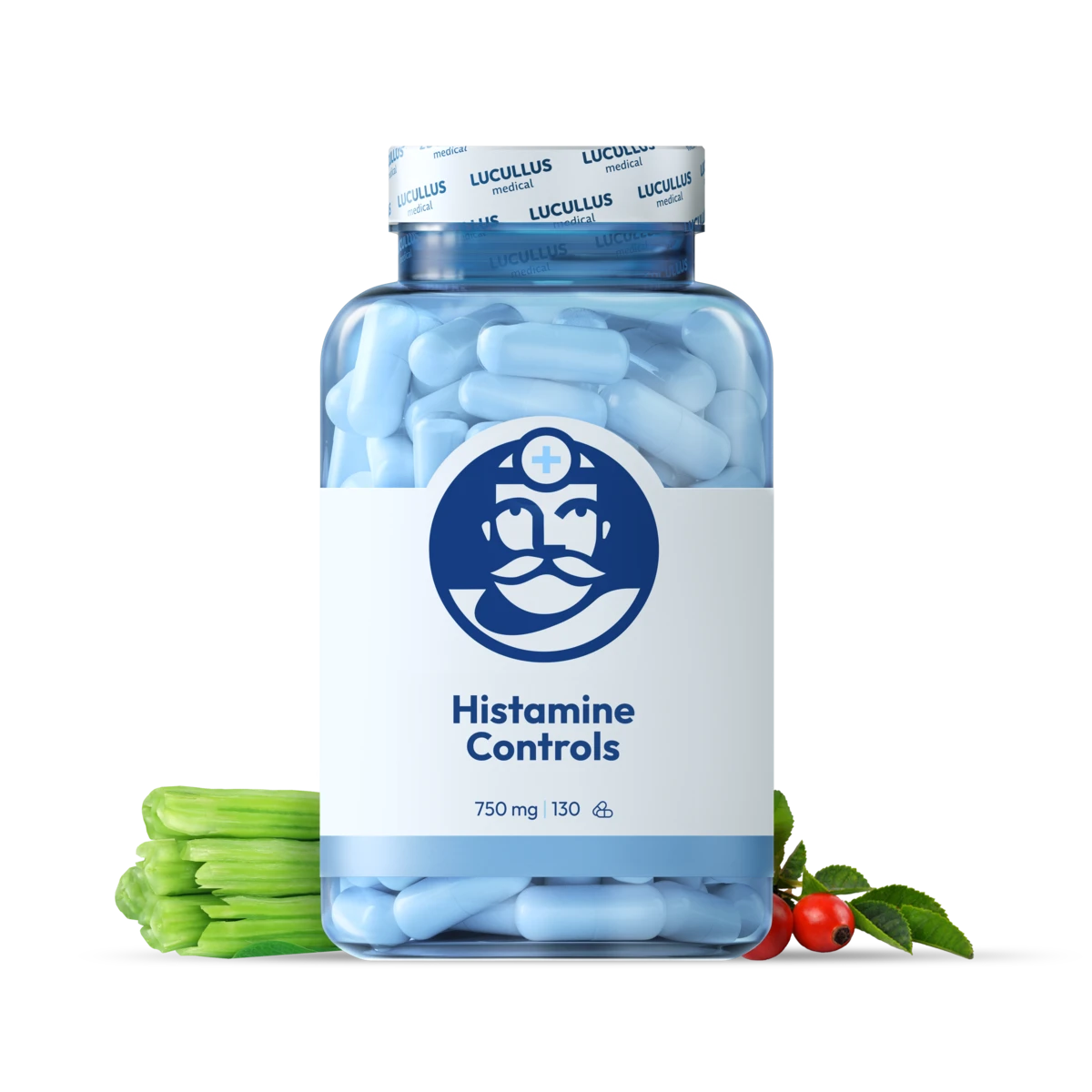
Histamine Control
Histamine is often perceived negatively, especially for its role in allergic reactions and intolerance. As with many things in life, black-and-white thinking is not suitable for this biogenic amine. As a neurotransmitter, it participates in many critical processes. In defending the body, for example, it supports the enlargement of blood vessels, making it easier for immune cells to access the site of inflammation. At the same time, it stimulates the production of gastric juices (essential for food processing), regulates the sleep cycle, controls appetite, and plays a role in learning, memory, and emotions. Histamine naturally occurs in the human body, and its balance is crucial for health. In the digestive system, it's broken down by the enzyme diamine oxidase. However, if histamine intake is greater than the body can break down, histamine intolerance develops. This imbalance can be caused by stress, poor lifestyle, medicines, or other factors. Excess histamine can lead to unpleasant symptoms, often resembling food allergies or digestive issues. It's essential to understand histamine as an important helper in our body.

Ashwagandha - krotiteľ kortizolu
Určite poznáte pocit, keď sa cítite v ohrození. Vybehol na vás spoza plota veľký pes, na porade sa na vás oboril šéf a zniesol vás pod zem, alebo je zajtra splátka hypotéky a vy ste práve dostali padáka z práce. V takýchto prípadoch telo produkuje steroidný hormón - kortizol. Ten nás už chráni v nebezpečných situáciách a telo pripravuje pozície "bojuj, alebo uteč". Srdce sa rozpumpuje, krv sa nahrnie do dôležitých orgánov, hladina bolesti potláča... Poviete si - najužitočnejšia vec pod slnkom!

Alchemilka - ženský plášť
Alchemilka obyčajná je bylina - trvalka, ktorá pochádza z Anglicka, ale rozšírila sa po celom svete. Jej listy a vrcholky kvetov sa po celé stáročia používajú najmä na zmiernenie problémov pri menštruácii, preto sa často nazýva aj "ženský plášť". Je však vhodná aj pre mužov, účinne pomáha pri bolestiach, laryngitíde, krvácajúcich ďasnách alebo ako kloktadlo pri zápaloch hrtana. Jej názov pochádza z arabčiny od slova al-chýmia. Alchymisti sa pokúšali vyrobiť zlato rôznych kovov, ale aj objaviť obyčajné veci. Raz z tajných ingrediencií pri výrobe zlata bola voda, zachytená v listoch tejto rastlinky. Pokiaľ je nám známe - nepomohlo to...

Jablčný ocot , ... nielen pre modelky
Jablčný ocot patrí medzi najobľúbenejšie prírodné produkty so širokospektrálnymi zdravotnými benefitmi. Jablčný ocot je už stáročia vyhľadávaný pre svoje účinky na zdravie, vrátane podpory trávenia, regulácie hmotnosti, udržiavania stabilnej hladiny cukru v krvi a zlepšovania kardiovaskulárneho zdravia.

Cholín a Inozitol
Cholín a Inozitol - dve slovká, ktoré ste pravdepodobne ešte nepočuli. Vo svetle doplnkov však ide o dôležité výživové doplnky skupiny B, ktoré však vlastne sú vitamínmi. Ide o látky, vitamíny veľmi podobné, ktoré podporujú funkciu pečene a látkovú premenu lipidov - čiže metabolizmus tukov. Cholín je vo vode rozpustný vitamín. Vyskytuje sa v Lecitíne, ktorý je bežný v mnohých rastlinných a živočíšnych tkanivách. Cholín je prekurzor pre neurotransmiter (teda prenášač) acetylcholín - ten sa podieľa na mnohých funkciách pamäti a svalovej činnosti.

Ženská rovnováha dôležitá pre každú ženu
Asi sa zhodneme na tom, že ženské telo a jeho hormonálna rovnováha, je komplikovanejšie, ako telo mužské. Na ženu totiž okrem iného výrazne vplýva aj jej mesačný ženský cyklus. Je preto oveľa dôležitejšie sledovať všetky potrebné látky a hormóny, ak chce žena žiť vyrovnaný, spokojný život či už po stránke zdravotnej, alebo tej psychickej.































